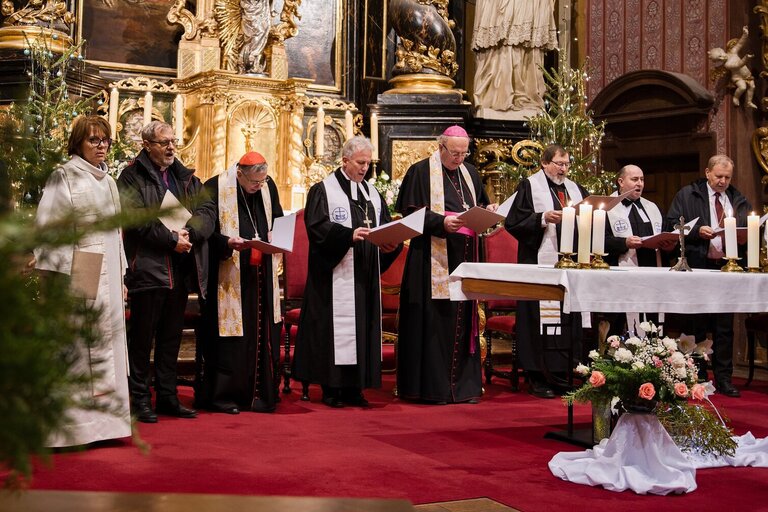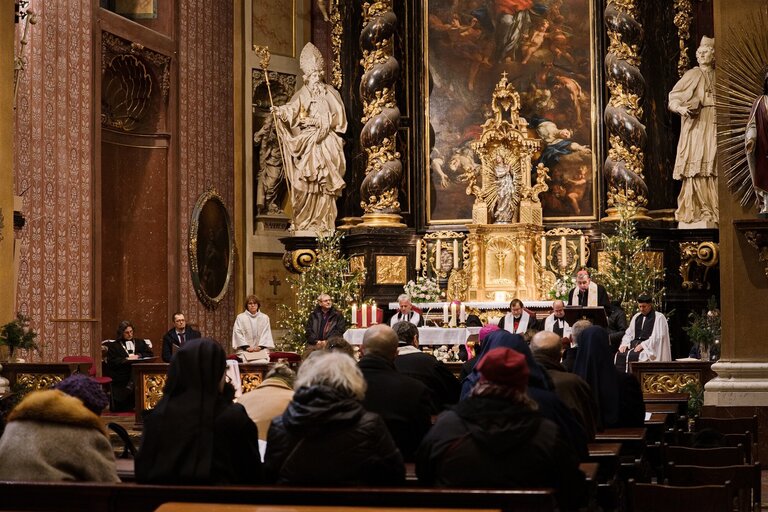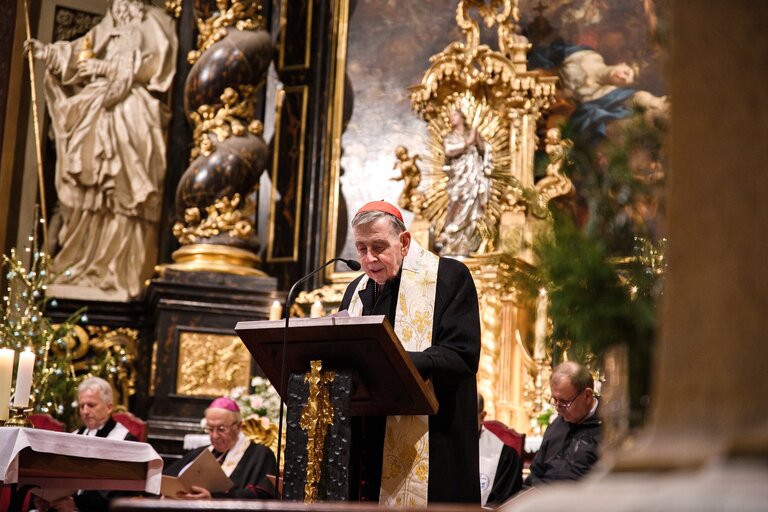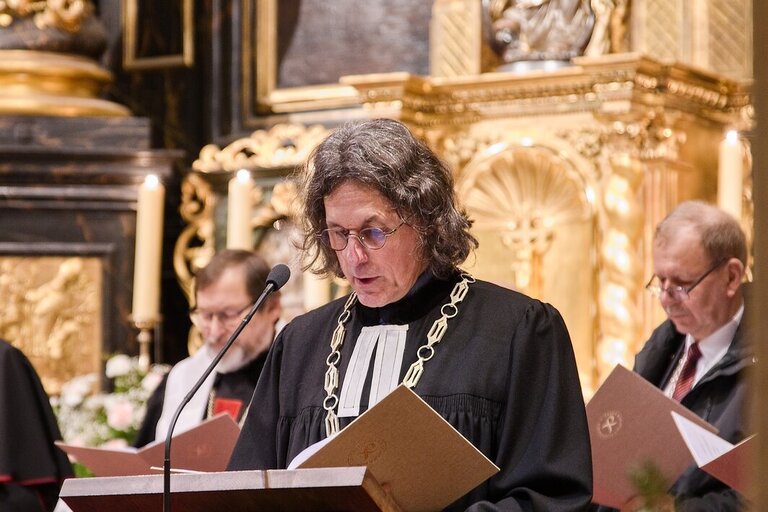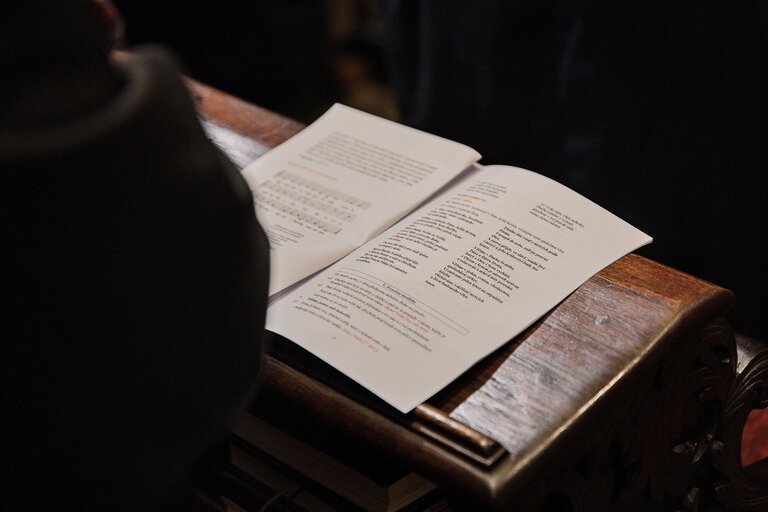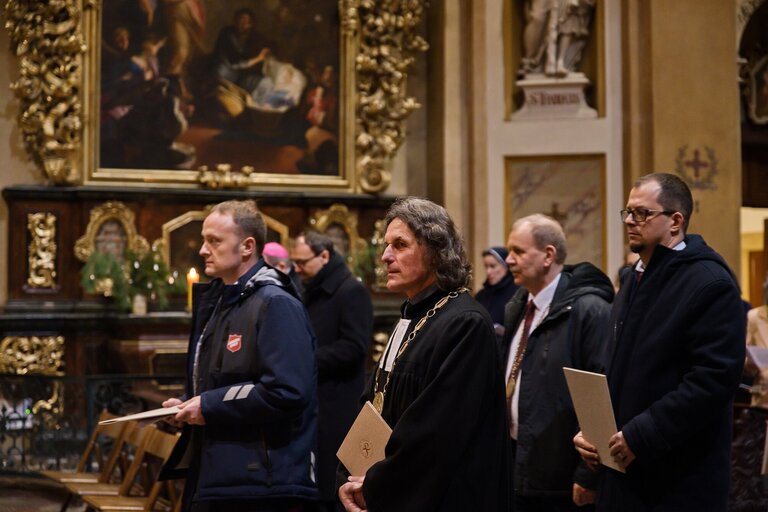Week of Prayer for Christian Unity: Do you believe this?
This year's Week of Prayer for Christian Unity was opened with an ecumenical service with Cardinal Kurt Koch in Prague. It will take place from 18 to 25 January 2025 and invites people to attend joint services and meetings in many places in the Czech Republic.
As part of the Week of Prayer for Christian Unity, an ecumenical service was held in the Church of St Ursula on 8 January 2025. It was jointly led by the Archbishop of Prague, Jan Graubner, and the President of the Ecumenical Council of Churches in the Czech Republic (ECC), Tomáš Tyrlík. Many representatives of the ECC member churches were also present, e.g. Synodal Senior Pavel Pokorný (ECCB), Patriarch Tomáš Butta (Hussite Church), Superintendent Ivana Procházková (Methodist Church) and others.
Cardinal Kurt Koch, Prefect of the Dicastery for Promoting Christian Unity, was the guest of honour and gave the sermon during the service. He had come to Prague to receive an honorary doctorate from the Rector of Charles University, Milena Králíčková. This act also had an ecumenical symbolism - Cardinal Koch's honour was proposed by representatives of all three theological faculties in Prague.
In his speech, Koch emphasised the importance of the Council of Nicaea (325), the 1700th anniversary of which is being celebrated by the churches this year and to which this year's theme of the Week of Prayer for Christian Unity also refers. At this council, which took place in Nicaea (in modern-day Turkey), the text of the so-called Nicene Creed was formulated, which was later amended and became known as the Nicene-Constantinopolitan Creed, which many churches (including the ECCB) still refer to today.
‘This confession of Christ then became the basis of the common Christian faith - above all because the Council of Nicaea took place at a time when Christianity had not yet been wounded by the many later divisions. (...)
It is therefore an important ecumenical imperative that the 1700th anniversary of the Council of Nicaea be celebrated by all Christian churches in ecumenical fellowship and that they appropriate the Council's profession of faith in Jesus Christ as an answer to Jesus' question: ’Do you believe this?’ For unity is based on the apostolic faith that is given and entrusted to every new member of the body of Christ at baptism,’ said Koch.
He also emphasised the role of prayer as the core of the ecumenical idea. ‘Prayer for Christian unity thus forms the core of all ecumenical endeavours. (...) The centrality of prayer for unity thus shows that ecumenical endeavour is above all a spiritual task, carried out in the conviction that the Holy Spirit has begun the ecumenical work and will complete it and show us the way.’
Ecumenical Week of Prayer 2025
The Ecumenical Week of Prayer for Christian Unity 2025 takes place from 18 to 25 January 2025 and has as its central theme the biblical quote from the Gospel of John ‘Do you believe this?’ (John 11:26). This year's foundations for the joint worship services and prayer meetings, which will also take place in many places in the Czech Republic, were prepared by members of the ecumenical community in Bosa, Italy.
‘What may be an almost superfluous question for other parts of the world is an existential question for us: Do you believe? And we are all invited to answer this clear question of Jesus to Lazarus' sister Martha with the words of the ecumenical creed formulated at the Council of Nicaea: We believe!
That is, not in the singular, but in the plural. For all of us, sisters and brothers from different ecclesial communities, have believed together in this way for centuries. And this common faith is the firm foundation to which we want to return again and again, confessing that our common creed is much more deeply rooted than the differences and tensions of life from faith in Jesus Christ, our Lord and Saviour, which have arisen in the 1700 years since the solemn proclamation of the Nicene Creed.
May this truth of the firm foundation of our common faith shine in all ecumenical encounters of the upcoming Week of Prayer for Christian Unity, not only here in the Czech Republic, but everywhere in the world,’ invite the organisers of this year's ecumenical encounters.
The handbook and further information can be found at ekumenickarada.cz/tmzjk
Quotes are translated
